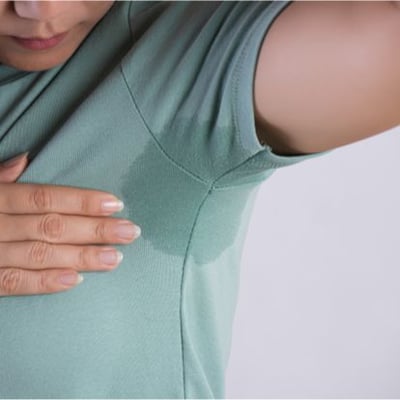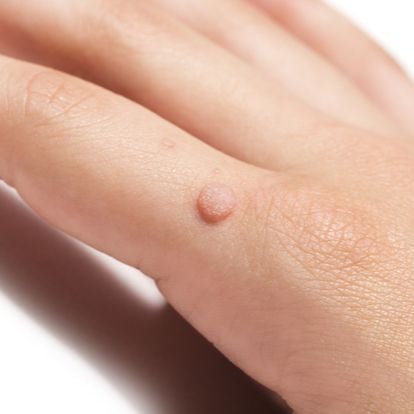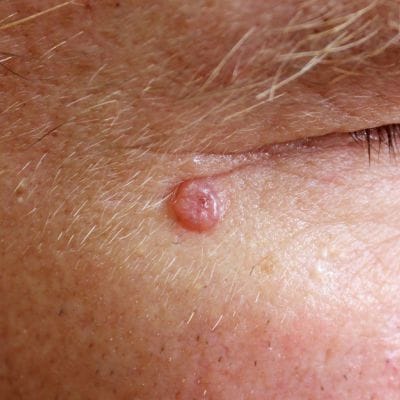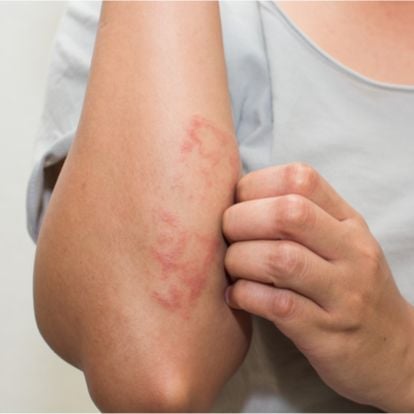Hyperhidrosis (Excessive Sweating)
 If you experience sweating that seems more excessive than normal on your hands, feet, or armpits, you may have hyperhidrosis.
If you experience sweating that seems more excessive than normal on your hands, feet, or armpits, you may have hyperhidrosis.
A board-certified dermatologist can help—read on to find out all about excessive sweating, what causes it, and treatment options to control your symptoms.
What is Hyperhidrosis?
Also known as excessive sweating, Hyperhidrosis is a medical condition that occurs when your body cannot properly regulate its internal temperature.
Approximately 4.8% of all Americans experience hyperhidrosis, with the severity of symptoms varying from mild wetness to excess dripping.
The glands responsible for this excessive sweating are known as eccrine glands. They are located in areas like your:
- armpits
- palms of your hands
- soles of your feet
- face
Hyperhidrosis can affect your quality of life, which is why it’s important to consider seeing a board-certified dermatologist, as they can help you determine the cause of your excessive sweating and provide treatment options to control the symptoms of your condition.
What are the Causes of Hyperhidrosis?
Hyperhidrosis occurs when you sweat much more than what your body requires to regulate its homeostatic temperature mechanisms.
Hyperhidrosis can be of two main types:
- Primary hyperhidrosis
This type of excessive sweating occurs due to the overactivity of your sympathetic nerves. And, since it occurs in specific areas like just your palms or soles of your feet, it may sometimes be referred to as primary focal hyperhidrosis. - Secondary hyperhidrosis
This type of hyperhidrosis is brought upon as a result of an underlying medical condition or due to the use of prescription medicines. Common medical conditions that may lead to secondary hyperhidrosis include:|- Thyroid issues
- Low blood sugar
- Neurological disorders
- Menopause
- Anxiety
Genetics may also play a role in the onset of hyperhidrosis.
What are the Symptoms of Hyperhidrosis?
Symptoms of hyperhidrosis include:
- Excessive sweating from your palms, armpits, under your breasts, and soles of your feet
- Excessive sweating on your face and head
- Generalized sweating (for those with secondary hyperhidrosis)
Depending on the severity of your symptoms, hyperhidrosis can not affect your daily life, or it can be intolerable and severely affect your quality of life, interfering with your social life, as well as your emotional and mental health.
How is Diagnosed?
A board-certified dermatologist can help accurately diagnose your hyperhidrosis. A physical exam, in addition to a complete evaluation of your overall health, family history of the disease, and current medication use, are all common when you schedule an appointment with a certified doctor.
Treatment for Hyperhidrosis is Safe When Performed by a Board-Certified Dermatologist
Primary hyperhidrosis and secondary hyperhidrosis are treated differently, as the reason they occur is different. Your board-certified dermatologist will be able to diagnose what type of excessive sweating you have and recommend a treatment plan based on your symptoms.
Common types of treatment for hyperhidrosis include:
- Botox Injections
Commonly used to treat excessive sweating in your hands and armpits, botox injections last for several months before you need to book another session. - Topical Agents
Commonly prescribed prescription-based medicines such as Drysol and Xerac are used to treat hyperhidrosis, with patients using it once or twice weekly to keep the symptoms of excessive sweating at bay. - Iontophoresis
This treatment uses electricity to turn off your sweat glands and is most commonly prescribed to patients experiencing excessive sweating in their hands and feet.






